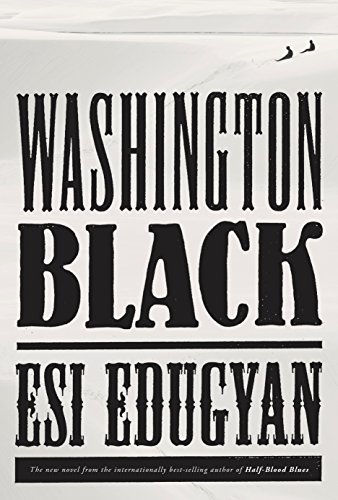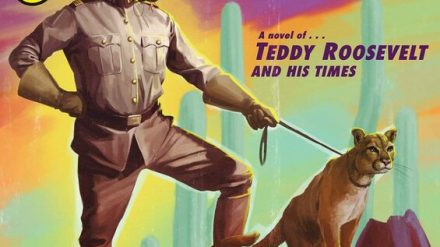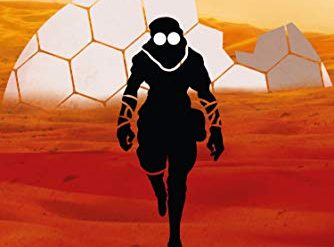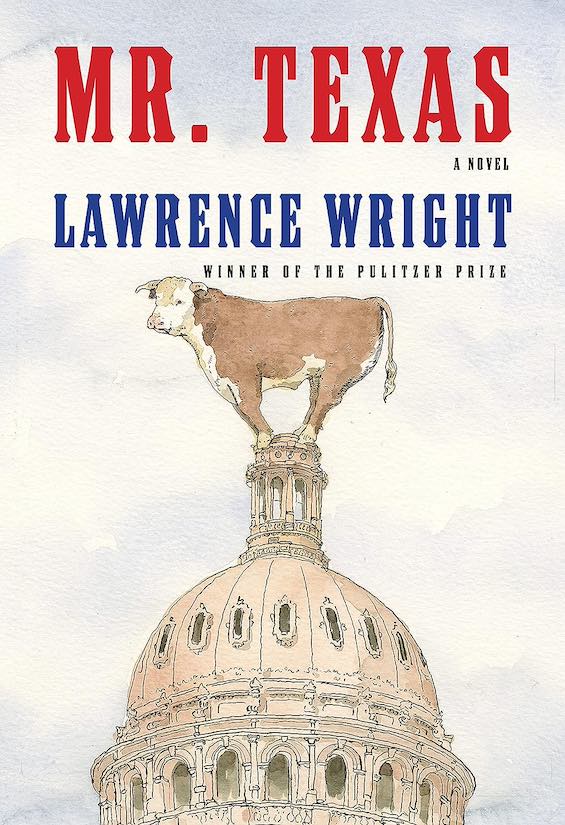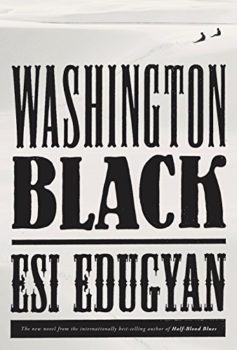
Barbados, 1830. George Washington Black is a slave on Faith Plantation, where he works in the sugarcane fields. He is ten or eleven years old when his first master dies. Dashing all hope of better conditions, his new master proves to be far worse than the first one. The thugs he recruits from the dock as overseers are sadistic and quick to maim or even kill slaves for slight infractions. The master himself is no better. But Wash’s circumstances quickly improve when the master’s younger brother arrives and claims him as his assistant. Esi Edugyan’s haunting new novel, Washington Black, centers on the deepening relationship between these two men.
Estimated reading time: 4 minutes
Wash’s new master is a tall, thin man in his thirties named Christopher Wilde. He is known as Titch. Like his father, Titch is a man of science. He’s also an abolitionist who disdains his brother’s cruel treatment of his slaves. “Negroes are God’s creatures also,” Titch tells Wash, “with all due rights and freedoms. Slavery is a moral stain against us. If anything will keep white men from their heaven, it is this.” Wash is astonished to find that Titch treats him like a human being, although he senses in the older man’s labored wording about race relations that Titch is a racist despite his opposition to slavery. But Wash’s stature rises even further when Titch discovers that he has a genius for drawing.
Washington Black by Esi Edugyan (2018) 332 pages ★★★★★
A haunting coming-of-age story about slavery and science
Wash narrates this tale as a freeman at age eighteen, following the pair’s travels from Barbados, to Virginia, Hudson Bay, Nova Scotia, England, Holland, and finally Morocco. The book spans seven or eight years as Wash experiences adolescence and discovers himself as a thinking human being. As Wash explains, “I have walked this earth for eighteen years. I am a Freeman now in possession of my own person.” Although Washington Black is at its heart about slavery, it’s also a coming-of-age story. Literary critics might call it a Bildungsroman that focuses on Wash’s intellectual and moral development. But the novel is also insightful about both science and abolitionism in the 19th century. (Note: science was called “natural philosophy” until much later in the century, although Edugyan doesn’t note this.)
The result is a haunting tale of a brilliant boy who emerges into manhood an accomplished artist and inventor. Yet Wash’s newfound self-confidence is not complete. “I had long seen science as the great equalizer,” he notes. “No matter one’s race, or sex, or faith—there were facts in the world waiting to be discovered. How little thought I’d given to the ways in which it might be corrupted.”
Slavery in 19th-century England and its Empire
Slavery persisted in the United States until 1863 and in Brazil until 1888. Yet both England’s Parliament and the US Congress abolished the slave trade in 1807. (In the case of the US, abolition did not apply to the slave trade internally.) Slavery was completely eliminated in the British Empire in 1833, midway through the period in which Washington Black is set. Later in the century, slavery and science would intersect in the pseudoscience called “scientific racism” that was grounded in a perversion of Charles Darwin’s theories called “Social Darwinism.”
Other reviewers’ comments about the novel
Colm Toibin reviewed Washington Black for the New York Times (September 27, 2018). He wrote, “What Edugyan has done in ‘Washington Black’ is to complicate the historical narrative by focusing on one unique and self-led figure. Washington Black’s presence in these pages is fierce and unsettling. His urge to live all he can is matched by his eloquence, his restless mind striving beyond its own confines in tones that are sometimes overstretched, if brilliant, and then filled with calm subtlety and nuance.” The Times later named the novel one of the ten best books of 2018.
In the New Yorker (September 24, 2018), Laura Miller noted that “Edugyan transforms ‘Washington Black’ from a Grand Guignol of slavery’s horrors into a lush, exhilarating travelogue reminiscent of Jules Verne, full of improbable events and encounters but with a splinter lodged in its heart.” The subhead of Miller’s review reads, “The tormented friendship at the heart of Esi Edugyan’s third novel complicates the story of a slave’s path to freedom.” That’s about right.
About the author
Novelist Esi Edugyan was born and raised in Canada, the daughter of immigrants from Ghana. She has written three novels, all of which have been shortlisted for and/or won major literary awards.
For related reading
Check out Good books about racism.
If you enjoy reading history in fictional form, check out 20 most enlightening historical novels.
And if you’re looking for exciting historical novels, check out Top 10 historical mysteries and thrillers.
And you can always find my most popular reviews, and the most recent ones, on the Home Page.

